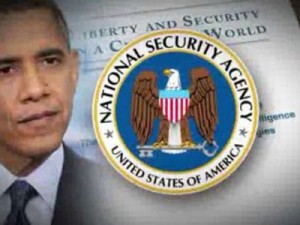 Five months ago, after leaks revealed that the government is engaged in a vast and disturbing array of intrusive surveillance programs, President Obama vowed to find ways to strike the “right balance between protecting our security and preserving our freedoms.”
Five months ago, after leaks revealed that the government is engaged in a vast and disturbing array of intrusive surveillance programs, President Obama vowed to find ways to strike the “right balance between protecting our security and preserving our freedoms.”
His announcement Friday of National Security Agency changes marked the start a much-needed recalibration toward individual privacy, but it fell short in some areas and left many of the key issues unresolved.
In classic Obama split-the-difference fashion, the president put forward “reforms” that are likely to satisfy neither the intelligence community nor civil libertarians. Perhaps that is as it should be. The balance between security and liberty raises difficult issues that don’t lend themselves to all-or-nothing solutions.
Most usefully, Obama erected some new safeguards around the most controversial surveillance program, the NSA’s collection of telephone records on virtually every American. And he promised new restraints on the practice of spying on friendly foreign leaders, the exposure of which has proved embarrassing and damaging to U.S. interests.
Once again, however, the president did a better job of articulating the challenge — “how we remain true to who we are in a world that is remaking itself at dizzying speed” — than in providing a clear enunciation of principles on which sound public policies can be built. How about starting with this one: The government is not entitled to get any piece of information on anyone it wants at any time without any cause, even if those data might someday come in handy against a terrorist plot.
Also missing from the president’s speech, delivered exactly 53 years after outgoing President Dwight Eisenhower warned of a “military-industrial complex,” was an explicit acknowledgment that the post-9/11 security-industrial complex has swelled out of control. Surely there are ways to streamline an intelligence community that now has 16 spy agencies, more than 100,000 employees and a “black budget” exceeding $50 billion a year.
As to specific programs:
Obama is struggling to maintain the potential benefits of the telephone records database while erecting barriers against inevitable abuses. Whether it’s possible to do that remains unproven, as is the program’s effectiveness as a terror-fighting tool.
NSA officials — who now decide whether to “query” a particular phone number from the enormous database of everyone’s call records — will have to get court approval first. That’s an important protection.
The president’s other proposed change — to transfer the database out of government hands — will prove more problematic. There is no existing entity to take it. The phone companies don’t want to be involved. It seems unlikely that Obama’s advisers and members of Congress will devise a satisfying alternative in the two months Obama gave them.
Ultimately, the fate of the program appears headed for the Supreme Court; last month, two federal judges, ruling in separate cases, came down on opposite sides of whether the phone data collection is constitutional.
The president will ask Congress to create a panel of lawyers to represent the public’s privacy interests in significant cases before the Foreign Intelligence Surveillance Act court, which operates in secret and hears only from the government. He’ll also ask advisers to review the court’s major decisions with an eye toward making some public. Both are steps in the right direction, though how far they go is unclear.
Obama missed an opportunity to make the court more diverse by changing the way its 11 judges are appointed. Currently, all the FISA court judges are named by Chief Justice John Roberts. The appointments should be spread among a wider array of officials.
The president did little to rein in the use of National Security Letters, a tool that allows FBI agents to require businesses to secretly hand over individuals’ banking, e-mail or telephone records — without seeking a judge’s approval. Before 9/11, the letters were used sparingly, but in 2012 the letters were issued at the rate of nearly 60 per day. Obama rejected the advice of his own advisory panel, which urged him to require a judge’s approval.
History has shown that when government has the power to vacuum up personal data, there is always a potential for abuse. Today, with the confluence of a real terrorist threat and technology that can sweep up once unimaginable amounts of data, the danger is multiplied.
In his new book, former Defense secretary Robert Gates wonders why, several years after 9/11, “there was not a top-to-bottom review of policies and authorities with an eye to culling out those that were most at odds with our traditions, culture and history.”
It took the revelations by fugitive leaker Edward Snowden to spark such a long overdue review and jar the administration into action.
The president’s actions Friday are best seen as the start of a course correction, one that will ultimately involve Congress and the courts in a bid to find a way, as Obama put it, “to protect ourselves and sustain our leadership in the world, while upholding the civil liberties and privacy protections that our ideals — and our Constitution — require.” Easy to say; hard to do.
. . . . . . . . . . . . . . . . . .
This article was written by the editorial board of USAToday.